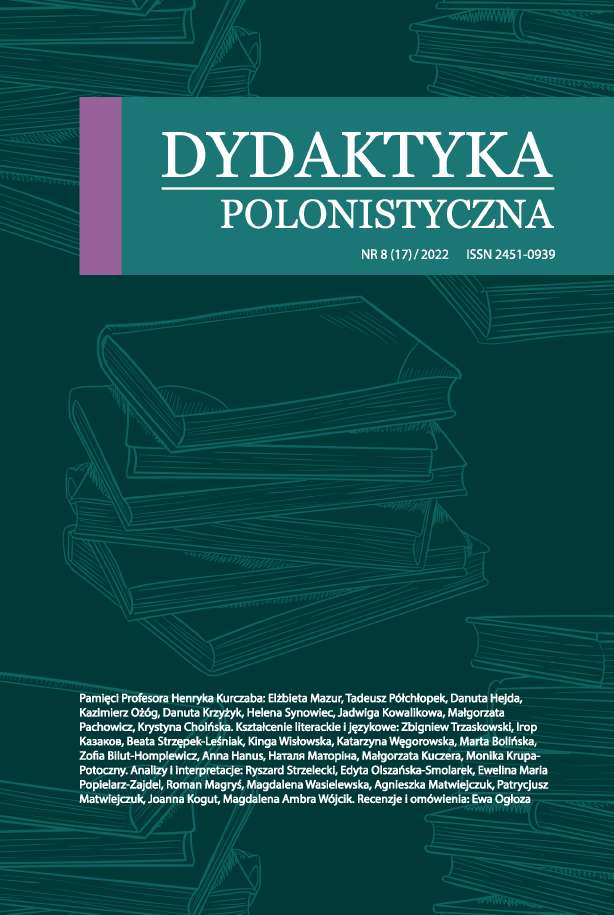Literatura polska i psychoanaliza wobec problematyki tożsamości po 1989 roku
DOI:
https://doi.org/10.15584/dyd.pol.17.2022.22Słowa kluczowe:
ponowoczesność, tożsamość, literatura kobieca, męska i niebinarna, psychologia tożsamości, psychoanalizaAbstrakt
Tożsamość to ważne pojęcie kultury ponowoczesnej. W Polsce wraz z przemianami po 1989 roku pojawiło się wiele tekstów, które podejmują tę problematykę. W celu ukazania bogactwa i złożoności ponowoczesnych tekstów literackich i psychoanalitycznych przeprowadzono analizy komparatystyczne polegające na czerpaniu z różnych założeń teoretycznych. W niniejszym artykule w zależności od badanego elementu czerpano z ustaleń psychoanalizy, ale także dekonstrukcji, feminizmu i „Gender Studies”. W publikacji zaprezentowano problematykę złożoności tożsamości. „Guguły” Wioletty Grzegorzewskiej to przykład literatury kobiecej, w której bohaterka odkrywa własną kobiecość. Męską realizację problematyki tożsamościowej omówiono na przykładzie „Poniewczasie” Wita Szostaka. W celu całościowego przedstawienia złożoności tożsamości płciowej nawiązano także do powieści Natalii Osińskiej „Fanfik”, w której bohaterka jest osobą transpłciową. W artykule ukazano także pojemny i bardzo złożony psychoanalityczny punkt widzenia na zagadnienie tożsamości. Artykuł ma charakter interdyscyplinarny, ze szczególnym uwzględnieniem literatury i psychologii, ale także elementów filozoficznych i socjologicznych.


